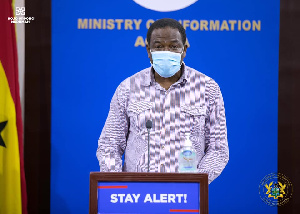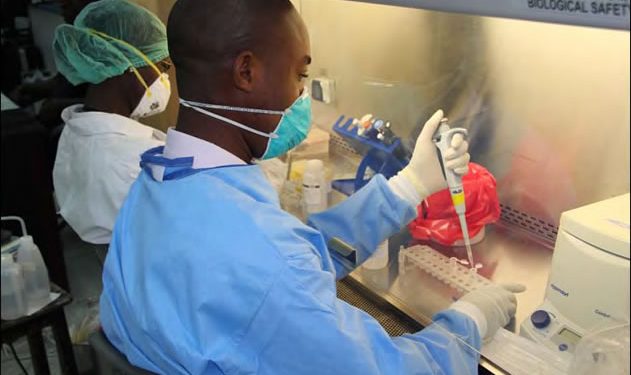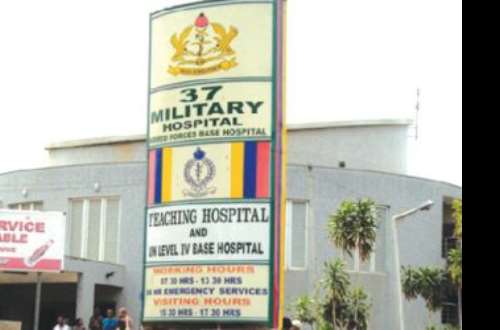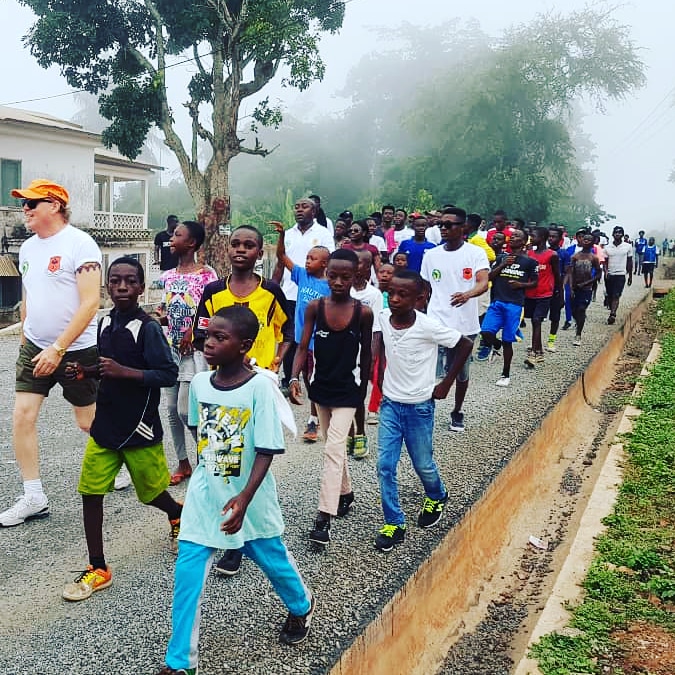Singing with masks could lead to respiratory problems – Singer

A praise and worship leader, Emmanuel Fisher Amankawaa, has told Nyankonton Mu Nsem on Rainbow Radio 87.5Fm that the use of face mask and singing would be difficult for singers as churches plan to resume following the easing of restrictions.
In his explanation, he warned of serious respiratory problems should the use of face mask and singing persist for a long time.
He was reacting to the mandatory wearing of face mask by church members as part of the protocols outlined for churches in the first phase of easing the restrictions announced by the president on Sunday.
Mr. Fisher Amankwaa said although this will be difficult for them, they have no other option to comply.
He said singing involves holding notes without taking extra breaths, hence covering the nose and mouth whiles engaging in this activity could be problematic if kept for long.
The Minister for Chieftaincy and Religious Affairs has outlined detailed guidelines for churches that will be operating.
Mr Samuel Kofi Dzamesi, at a press conference on Monday, asked churches to allow all other persons involved in singing and preaching to wear face masks.
He also asked churches to “Form COVID-19 Task Force comprising of members who are preferably health workers. They must be trained in health promotion measures, infection prevention and control and evacuation procedures by Ghana Health Service.
“The COVID-19 Task Force should call 112 or 311 for support to enable evacuation anyone develops fever, coughs and difficulty in breathing during service,” he said.
Below are the full guidelines
I. Thermometer guns or thermal scanners are to be provided for checking the temperature of congregants at entry points.
II. No mask: No entry Policy to be enforced
III. Provision of handwashing facilities with running water and soap and/or FDA approved alcohol-based hand sanitizer.
IV. Provision of adequate waste management facilities (bins, cans, bin-liners and single-use tissues).
V. Provision of adequate toilet facilities for use by members.
VI. Regular cleaning and disinfection of frequently used communal places (like toilet surfaces) and frequently touched surfaces such as doorknobs/handles, preferably every 1-2 hours depending on the rate of utilization.
VII. Designate a holding room or area where a person who becomes sick at the premises/event can be isolated from others while making arrangements for evacuation.
VIII. Regular disinfection of venues used by churches, preferably once every month. For example, fumigation and disinfection must be carried out with recognized entities like Zoomlion.
IX. Trained cleaners with the necessary personal protective equipment and cleaning items to clean the facilities regularly and handle waste appropriately.
X. Provide adequate ventilation, i.e. open windows to allow for the maximum circulation of fresh air, if possible, avoid confined air-conditioned rooms.
XI. Display approved health promotion materials on COVID-19 at vantage points to remind congregants to keep to social distancing protocols, wearing of the masks, regular handwashing, coughing and sneezing etiquette.
XII. Ensure a No handshake, No hugging and No Spitting policy at all time.
XIII. Follow established evacuation procedures (as outlined in Annex 1) to enable evacuation if a congregant becomes sick during the event and has to be evacuated.
XIV. Form COVID task force comprising of members who are preferably health workers. They must be trained in Health Promotive prevention measures, Infection Prevention and Control (IPC) and Evacuation Procedures by Ghana Health Service.
XV. The COVID task force should Call 112 or 311 for support to enable evacuation if anyone develops fever, cough, and difficulty in breathing during service.
XVI. Unwell Persons are not allowed to attend church
XVII. Older persons and people of any age with underlying medical conditions, heart diseases, diabetes, liver disease, and asthma are advised to stay away from church service
XVIII. Sharing personal items such as watches, jewellery, pens and phones should be discouraged.
XIX. If an individual is confirmed positive for COVID-19, all contacts must be traced and screened.
XX. No crowd dancing and waving of handkerchiefs during church services.
XXI. Sanitize microphones immediately after each use.
XXII. All who speak/sing in churches (including Pastors, Sunday school teachers, Singers and Announcers) must wear facemask during service.
XXIII. Discourage singing in groups. Pre-recorded songs or solos should be used.
XXIV. Pre-packaged communion bread and wine should be picked up by members at the point of entry.
XXV. Place offering bowls at the entrance and exit points for members to give offerings and tithes when entering or on their way out of church premises. Encourage cash transfers via mobile money or mobile banking as forms of giving offerings.
XXVI. In observance of social distancing protocols, laying on of hands should not be allowed.
XXVII. Spend at least 5 minutes of church service time to educate church members on COVID-19.
XXVIII. Provide separate sitting areas for the aged and for families that are together.
XXIX. The church is encouraged to mobilize resources to help individuals in need including offering church health facilities.
Samuel Kofi Dzamesi





